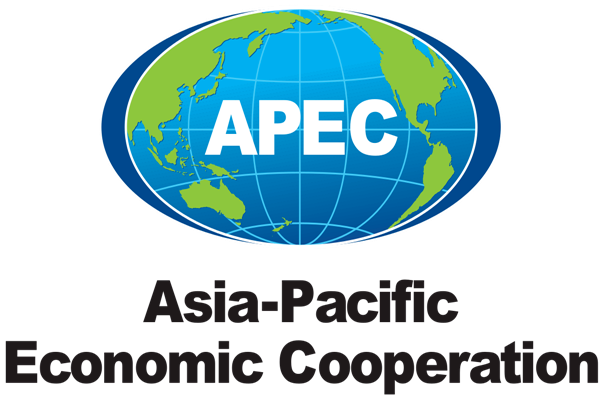News
Malaysia to focus on economic integration, inclusivity & sustainability at APEC 2020
By Nurul Hanis Izmir
KUALA LUMPUR, Aug 12 (Bernama) -- Malaysia's focus on three priority areas - regional economic integration, inclusivity and technology, and innovation and sustainability - when it hosts the Asia-Pacific Economic Cooperation (APEC) 2020 next year will be timely given the immense challenges confronting the global economy.
From trade wars to protectionist tendencies and concerns of slowing global trade, APEC 2020 will chart the next 10-year chapter of the regional forum via a brand new goal that builds further the previous Bogor Goals of free and open trade and investment.
APEC 2020 in Malaysia would, therefore, emerge as one of the forum's flagship initiatives.
As a host nation, Malaysia has the opportunity to take on a leadership role in regional economic integration through greater free and open trade and investment, as the region is now facing a slowdown, no thanks to the ongoing US-China trade war and trade friction between South Korea and Japan.
The fact that these four countries are major economies in APEC makes it imperative for Putrajaya to influence the forum’s 21-member economies to pursue liberation rather than protectionist tendencies that will benefit both developing economies and industrialised countries.
The Bogor Goals was established in 1994 in Bogor, Indonesia where member nations have committed to achieving free and open trade and investment by 2010 for industrialised economies and by 2020 for developing economies.
Apart from working towards improving the gross domestic product (GDP) of the 21-member economies, Putrajaya would also be well-placed to ensure inclusive economic participation in hosting supply of goods and services while showcasing the capabilities of the local small and medium enterprises (SMEs).
The rich platform of APEC will no doubt provide great opportunities for the businesses to learn about good policies and best practices to adopt as well as creating synergies among the local SMEs with the other 20 APEC economies as the SMEs are the engines of growth and innovation in the APEC region.
SMEs account for over 97 per cent of business and employ over half of the workforce across APEC economies.
As for Malaysia, it should take the advantage during this one-year chairmanship of APEC beginning in December this year, to ensure it achieves the target of SMEs contributing 41 per cent to the country's GDP by 2020, as envisaged under the National Entrepreneurship Policy 2030.
In 2018, SMEs contributed 38.3 per cent to GDP amounting to US$126.3 billion (RM521.7 billion) versus the 37.8 per cent to US$117.9 billion (RM491.2 billion) in 2017.
Inclusivity and the digital economy are no less important as “e-commerce”, which refers to the buying and selling of products and services online using the Internet, becomes a mainstay of current and future economic transactions.
Regarded as a new initiative in the 21st century, an e-commerce platform would be the most talked-about topic as it is a powerful enabler for micro as well as small and medium enterprises’ (MSMEs).
E-commerce is also one of the fastest-growing segments of global trade from zero to an estimated value of US$1.92 trillion.
Innovation and sustainability meanwhile are crucial to ensure food security, a circular economy as well as sustainable energy.
Against such initiatives, as APEC host, Malaysia wants to nurture a sense of pride among its 31 million populace not only in the country hosting the event but also ensuring the economic deliverables for a decade after 2020.
As a host nation, Malaysia would have the advantage to name the next APEC initiative post the Bogor Goals.
Established in 1989, APEC operates as a cooperative multilateral economic trade forum for its 21 member economies, aims to create greater prosperity by promoting a balanced, inclusive, sustainable, innovative and secure growth by accelerating regional economic integration.
Besides Malaysia, the other 20 member economies of APEC are the US, Australia, Brunei, Canada, Chile, China, Hong Kong, Indonesia, Japan, Mexico, New Zealand, Papua New Guinea, Peru, the Philippines, Russia, Singapore, South Korea, Chinese Taipei, Thailand and Vietnam.
-- BERNAMA
Other News
Sarawak Lepasi Sasaran Kapasiti Gabungan Tenaga Boleh Baharu Tahun Ini - Abang Johari

Oleh Nur Ashikin Abdul Aziz
SINGAPURA, 21 Okt (Bernama) -- Sarawak mencapai 62 peratus sasaran campuran kapasiti tenaga boleh baharu (TBB) tahun ini, melepasi sasaran 60 peratus yang digariskan dalam Strategi Pembangunan Pasca COVID-19 (PCDS) 2030.
Sarawak Pacu Pertumbuhan Tenaga Boleh Diperbaharui Untuk Manfaat ASEAN - Premier

SINGAPURA, 21 Okt (Bernama) -- Sarawak komited menyokong peralihan tenaga boleh diperbaharui di Asia Tenggara dengan memanfaatkan potensinya sebagai "Bateri ASEAN," yang akan membekalkan tenaga bersih menerusi sambungan Grid Kuasa Borneo dan ASEAN.
Belanjawan 2025 Percepat Peralihan Kepada Tenaga Bersih - Solarvest

KUALA LUMPUR, 19 Okt (Bernama) -- Belanjawan 2025 merupakan satu langkah ke arah mempercepat peralihan kepada tenaga bersih di Malaysia, kata Solarvest Holdings Bhd.
© 2025 BERNAMA. All Rights Reserved.
Disclaimer | Privacy Policy | Security Policy This material may not be published, broadcast,
rewritten or redistributed in any form except with the prior written permission of BERNAMA.
Contact us :
General [ +603-2693 9933, helpdesk@bernama.com ]
Product/Service Enquiries [ +603-2050 4466, digitalsales@bernama.com ]
